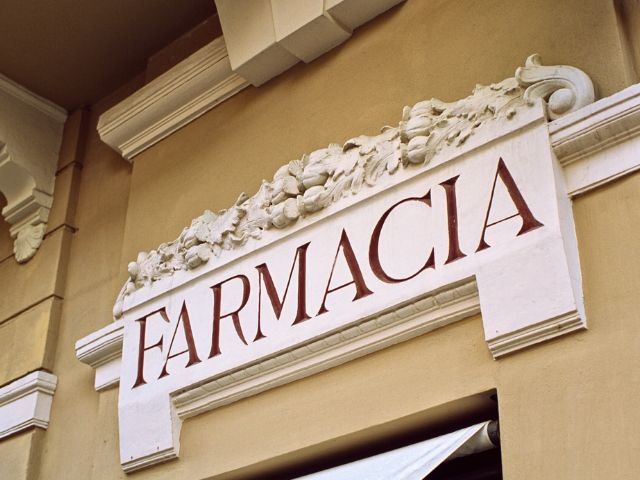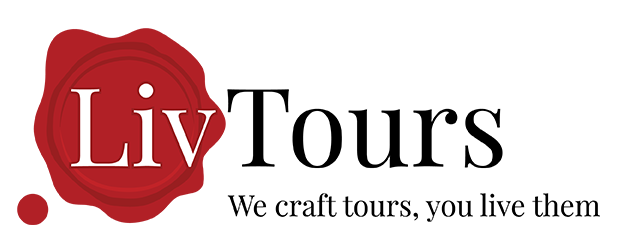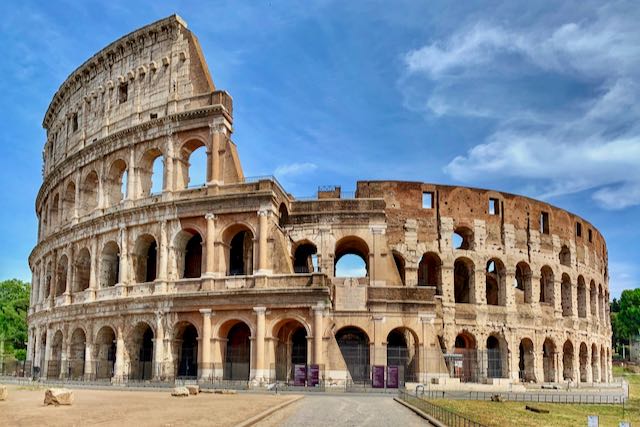- Sign up & get a FREE ebook Subscribe NOW!
- Romewise Home Page
- Stay Safe in Rome
- doctors in rome
Medical Emergencies and Seeing Doctors in Rome: What to Do and Where to Get Help
Wondering what to do if you have a medical emergency while in Rome, or needing to know how to get medical treatment from doctors in Rome?
Find everything you need to know on this page!
 While you will see these bright green neon signs everywhere in Rome signifying where a pharmacy is, there are many more ways to get medical assistance
While you will see these bright green neon signs everywhere in Rome signifying where a pharmacy is, there are many more ways to get medical assistanceHow to see a medical professional in Rome Italy - Everything you need to know
Don't panic if you don't know what to do if you have an emergency when in Rome.
Not many visitors do!
Knowing what to do in the case of an emergency – health or otherwise – while visiting anywhere is fundamental to feeling at ease on your travels.
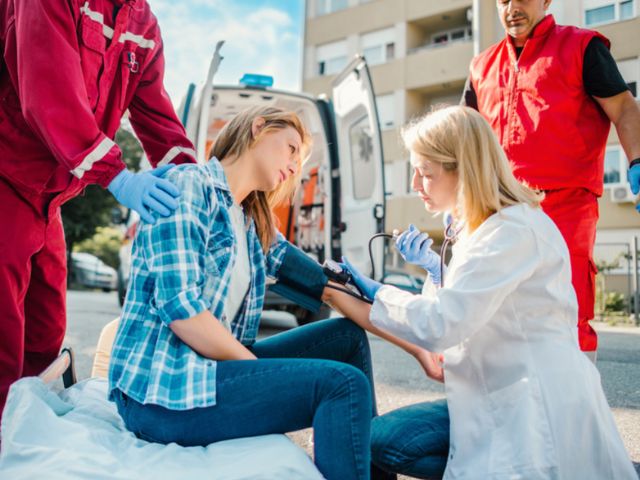 You can travel to Rome safely, knowing that you have lots of options to get help in the unlikely event you need it while here. Photo Credit: FirstMed
You can travel to Rome safely, knowing that you have lots of options to get help in the unlikely event you need it while here. Photo Credit: FirstMedOn this page we'll be talking about:
- What to do in an emergency during your trip in Italy
- How to see a Rome doctor
- Dealing with minor health concerns
- Why it's important to have good health insurance
- Some useful phrases to know when you need medical treatment in Rome
What to do in an emergency during your trip to Italy
First things first, if you find yourself in an emergency situation and cannot see a professional nearby who can help (such as a police officer) you should call 112.
You do not need to add a country code when dialing from within Italy or Europe, and you will then be evaluated and then routed to the right department according to your situation.
The emergency services in Italy operate and are structured like most of the English-speaking world and western Europe.
You have the health services (paramedics, ambulances), the fire services, and the police assistance.
What about an emergency situation at the Vatican?
If you need aid while at the Vatican, outside in St Peter’s Square you will find police patrolling, either on foot or in vehicles.
There is almost always at least one vehicle at the border with Italy at the front of the piazza.
If you are inside St Peter’s Basilica, the Vatican Museums or another part of Vatican City, seek help from a staff member or a Swiss Guard – recognizable by their distinct traditional uniforms.
In the unlikely event you cannot see or find someone who can help you, call 112 as outlined earlier on this page.
For Medical Emergencies:
If you know that you require emergency or immediate medical help, dial 118 (no dialing code) where the operator will ask you to describe your situation.
At this point you can ask if they speak English, and if they cannot, they will connect you with someone who can.
The operator will assign you a color based on your circumstances.
White (bianco) for anything non-critical, green (verde) for non-urgent matters, yellow (giallo) for critical/urgent things or red (rosso) for emergencies requiring immediate attention or that are deemed as life threatening.
The operator will then request the relevant assistance which will be dispatched to your location accordingly.
Another option for urgent care is to get to your nearest Pronto Soccorso, the Italian equivalent to an ER/Emergency Room/Accident and Emergency.
Use Google Maps to find your nearest location.
On arrival at the Pronto Soccorso describe your situation in clear and plain English and the professionals will then assist you accordingly.
Other emergency numbers you should know:
- 113 for Police assistance
- 115 for the Fire Brigade
How to see a doctor in Rome
If you do not need emergency help but need to visit a doctor in Rome it is much easier than you might think.
Keep reading to find out which specific clinic in Rome I recommend!
There are several English-speaking clinics in the city center which can offer assistance to visitors as well as short- and long-term residents.
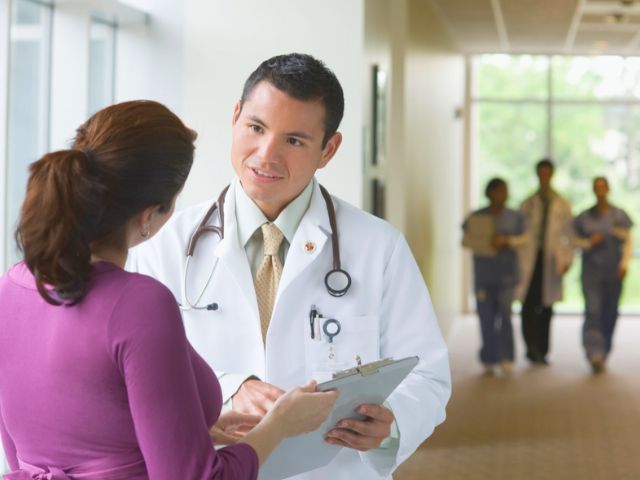 There are lots of reasons why you may want to visit doctors in Rome that aren't serious enough to be classes as an emergency. Photo Credit: FirstMed
There are lots of reasons why you may want to visit doctors in Rome that aren't serious enough to be classes as an emergency. Photo Credit: FirstMedAt these clinics you can:
- Request assistance with prescriptions – both one-time and ongoing
- Test for, and treat illnesses/conditions including COVID-19 and sexually transmitted diseases
- Talk to medical professionals about gynecological matters
- Consult a professional on any dermatological questions you may have
- Undertake blood tests where the cost can often be cheaper compared to the same procedures in other countries.
- Address simple and non-critical injuries such as sprains resulting from trips and falls. Clinics will more often than not undertake X-rays as part of orthopedic inquiries.
- Receive aesthetic medicine and certain cosmetic procedures
- Request general medical advice and more
The cost of assistance depends on what you need, and many clinics will work with your health insurer.
If you are concerned about the cost of assistance or have questions related to insurance, speak to the clinic before confirming an appointment.
My recommended clinic for high quality care in Rome
For high quality care that is not an emergency I would recommend using the FirstMed clinic in Rome.
Their clinic can be found at Via Giovanni Battista Morgagni 30/H in the center of Rome.
It is very close to the Policlinico metro stop on Metro B (the blue line) making getting here extremely easy.
From Termini station it will take you less than 15 minutes to get there.
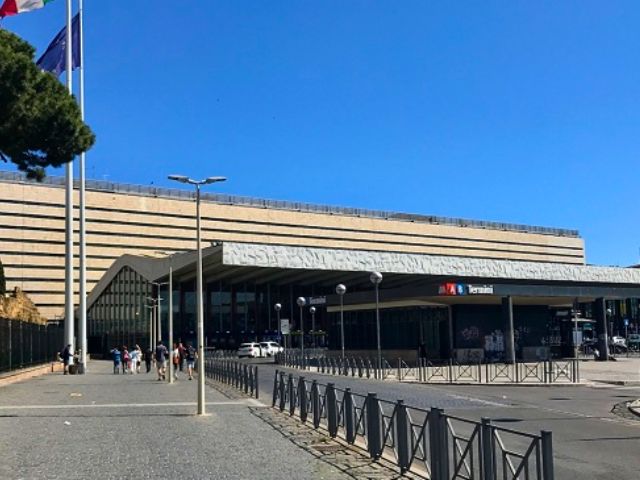 The central location of FirstMed, just a short trip from Termini station, is one of the reasons it is such a top rated clinic in Rome
The central location of FirstMed, just a short trip from Termini station, is one of the reasons it is such a top rated clinic in RomeFirstMed offer a full range of services including everything outlined above, as well as:
- Annual health checkups
- Cardiology services
- COVID-19 testing
- Flu vaccinations
- Medical certificates for Italian residents
- Pediatric and family health consultations
To schedule an appointment you can contact this number via WhatsApp:
(+39) 338 312 63 31
Alternatively you can book online here.
They also have a 24/7 hotline which can be reached on (+39) 06 40 06 14 02
Not in Rome?
FirstMed offers a Telemedicine service where you can undertake a remote consultation if you are in a different area of Italy such as Florence or Naples.
They will provide a prescription via email, which can then be taken to a local pharmacy for fulfilment.
Dealing with minor health concerns
If you are looking to address a minor health issue or need first aid, such as light sunburn/sunstroke, a common cold/flu, small insect bites or anything else day-to-day, head to a pharmacy.
Note that pharmacies in Italy cannot refill prescriptions and cannot prescribe antibiotics or more advanced medicines.
For these you will need to see a doctor first.
Pharmacies in Italy are easy to spot as almost all of them have a bright green cross sign outside, often illuminated with led lights.
Italian pharmacies offer a broad range of products either directly off the shelf, or can dispense more specialist products over the counter following a chat with the pharmacist.
From my own experience, pharmacies in popular tourist areas can be very busy, and the queues move slow as the professionals are thorough in providing the right care.
Be patient and you will get the help you need!
Unlike in other countries you should note that in Italy most grocery stores/supermarkets will only have a very small selection of health-related products and cannot be relied on to address your issues.
No matter what season you visit Rome, here are 4 essential things we recommend never leaving home without:
Why it's important to have good health insurance cover
In the event of a critical emergency, you will not be required to make payment up front to receive medical assistance.
Health insurance will help cover any costs charged at a later date (and may even completely cover emergency care costs, depending on the level of coverage you have).
Italian residents are enrolled in the national health service and use their tessera sanitaria to access services.
Like most national health services, sometimes there can be a wait for appointments, and Italian residents (like myself) will sometimes opt for private assistance through clinics like FirstMed.
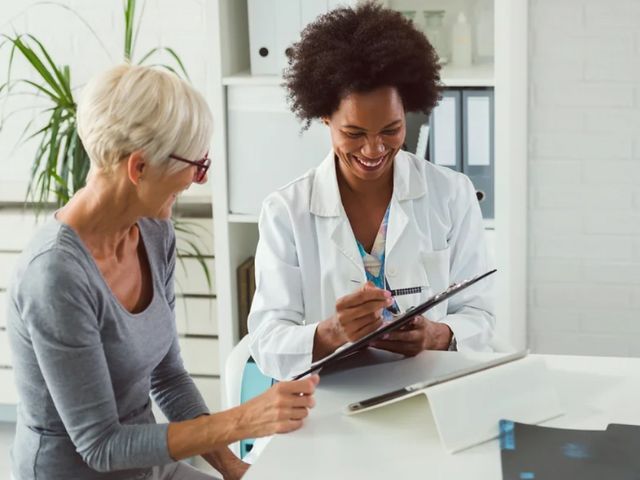 Using a private clinic is a great option for seeing a doctor in Rome quickly. Photo Credit: FirstMed
Using a private clinic is a great option for seeing a doctor in Rome quickly. Photo Credit: FirstMedThis has the benefit of greater availability and flexibility with appointments, and the guarantee that the professional you see will speak fluent English.
Most clinics work with the big names in health insurance cover, FirstMed for instance works with over 30 global insurers and will aid you in completing all of the necessary paperwork following assistance.
Some useful phrases to know when you need medical assistance in Rome
Most professionals in the emergency and health services in Italy will speak at least some English, and in recent years it has become a requirement for some professions and specialisms.
However, you may find yourself in a situation where there is not a professional immediately available and you don't have someone nearby who speaks English.
Here are a few phrases that will help:
- Aiuta! | Help!
- Tu parli inglese? | Do you speak English?
- Può aiutarmi? | Can you help me?
- Ho bisogno un dottore | I need a doctor
- Chiami un’ambulanza | Call an ambulance
- Il nostro indirizzo è… | Our address is...
To summarize:
If you need immediate help, dial 112 with no international dialing code or head to the nearest hospital emergency room to get help from the doctors and nurses there.
If you don’t need urgent care, consider contacting FirstMed in Rome whose English-speaking doctors are there to help you.
Romewise's Top Travel Resources
Ready to book your trip to Rome? Take a look at these helpful links to companies we use and trust:
- Keep your travel spending simple with the Wise card, which removes all the worry about exchange rates and high transaction fees all over the world
- Search for and book your perfect accommodation
- Our complete guide to what to pack for Rome
- The number one travel accessory, a multi-point travel adapter and voltage converter
- Browse a huge range of tours in Rome and beyond
- Experience unique tours and special access to Rome's most popular sights
- Protect yourself with comprehensive travel insurance
Within this post there are some affiliate links for products and services. For more details about our affiliate policy click here.
Get your 100% free Rome trip planner now!
Simply sign-up today for our free newsletter and get the Romewise Quick Start guide to Rome:
We are committed to respecting your data. Click for our Privacy Policy.
Comments? Questions? Suggestions?
Please come over to the private Romewise Facebook group and join in the conversation.
You will often find me there, happy to answer your questions / comments!
You will also meet other Rome lovers and experts, too.
What are you waiting for?
- Romewise Home Page
- Stay Safe in Rome
- doctors in rome

